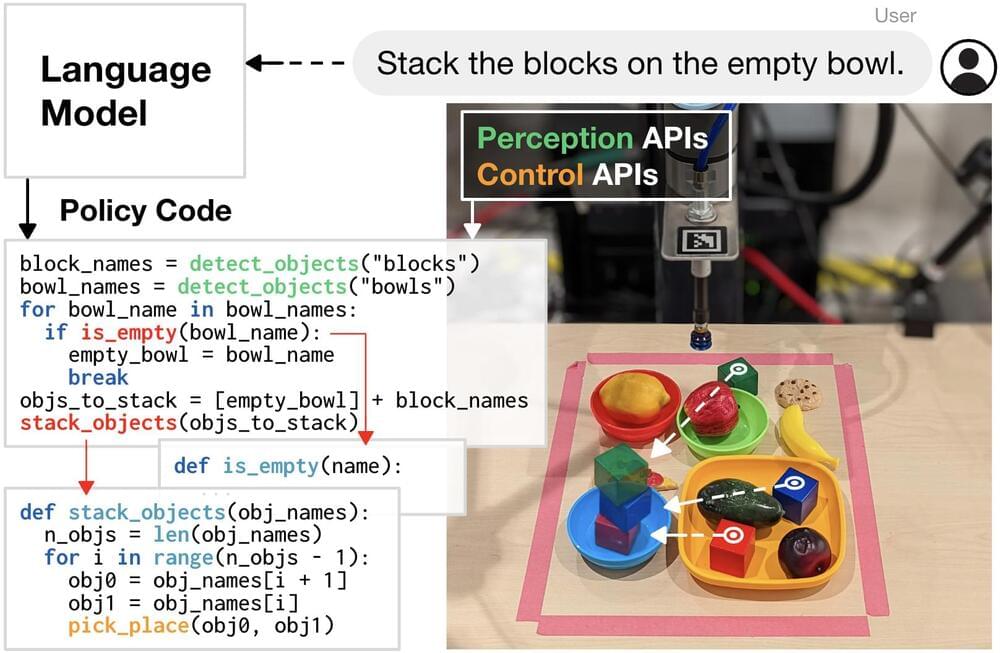A common approach used to control robots is to program them with code to detect objects, sequencing commands to move actuators, and feedback loops to specify how the robot should perform a task. While these programs can be expressive, re-programming policies for each new task can be time consuming, and requires domain expertise.
What if when given instructions from people, robots could autonomously write their own code to interact with the world? It turns out that the latest generation of language models, such as PaLM, are capable of complex reasoning and have also been trained on millions of lines of code. Given natural language instructions, current language models are highly proficient at writing not only generic code but, as we’ve discovered, code that can control robot actions as well. When provided with several example instructions (formatted as comments) paired with corresponding code (via in-context learning), language models can take in new instructions and autonomously generate new code that re-composes API calls, synthesizes new functions, and expresses feedback loops to assemble new behaviors at runtime.
